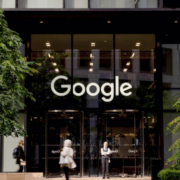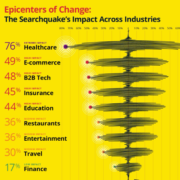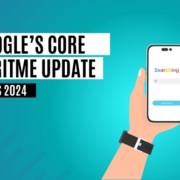Google Lets Users Decide About Cookies
The change in cookie policy
Google recently shared that they will not completely abolish third-party cookies after all as previously planned. Google still plans to abolish third-party cookies, but this will be done gradually through the Privacy Sandbox, which offers alternatives to tracking. Instead, users will have the choice of whether to allow cookies or not. This raises questions about the implications for advertisers and the protection of personal data. In this article, we talk about the impact on advertisers and users and the possible consequences for in the future.
Apple's Example and Google's Approach
In 2021, Apple introduced the App-Tracking Transparency (ATT) feature, allowing users to choose whether they wanted to be tracked by apps. This made it a lot harder for advertisers to track users. In fact, the opportunities to do so became a lot less. This had a big financial impact on Meta. Google offers privacy-friendly alternatives to third-party cookies through Privacy Sandbox, but does not explicitly ask users for permission for every tracking action the way Apple's ATT does.
The impact on users & advertisers
Consumer preferences and privacy
An important factor in this change is consumer attitudes toward privacy. Indeed, users have become much more aware and caring about this. In fact, data shows that a large number of users are blocking cookie tracking. According to online sources, about 70% of consumers are currently not being tracked by cookies. This is due to blocking by the user themselves or by using browsers such as Apple's Safari, which generally blocks cookies by default.
Advantages and disadvantages for advertisers
If cookies disappear or if many users choose to block them, this could reduce the effectiveness of online ads and reduce advertisers' revenues. Advertisers will therefore have to be more transparent about their data usage and may have to invest in server-side tracking, among other things.
Google's Privacy Sandbox is a new initiative to help advertisers still show targeted ads while protecting users' privacy. Reactions to this system have been mixed. Some worry about how well it will work and the potential impact on privacy.
What does this mean for the future?
Google's decision to let users make their own choice about cookies indicates the importance of privacy. This means advertisers will adapt to this situation, especially when the exact future of online tracking is uncertain and in which there will be more emphasis on transparency and privacy. This shift may affect that way we advertise, with more focus on first-party data.
While first-party cookies are essential for the basic functionality and user experience of a website, third-party cookies are often used for targeted advertising and tracking. If you want to learn more about the differences between first-party and third-party cookies and how they affect privacy and advertising, you can read our earlier article on first-party and third-party cookies. In this article, we discuss in detail the differences between the two types of cookies and their impact on.
Getting Started with Server Side Tracking
First party cookies and third party cookies have their own applications and challenges, but with increasing restrictions on third party cookies, a new approach is needed. Starting to apply server side tracking is a good option in this. Would you like to get help with this? Please contact us.








